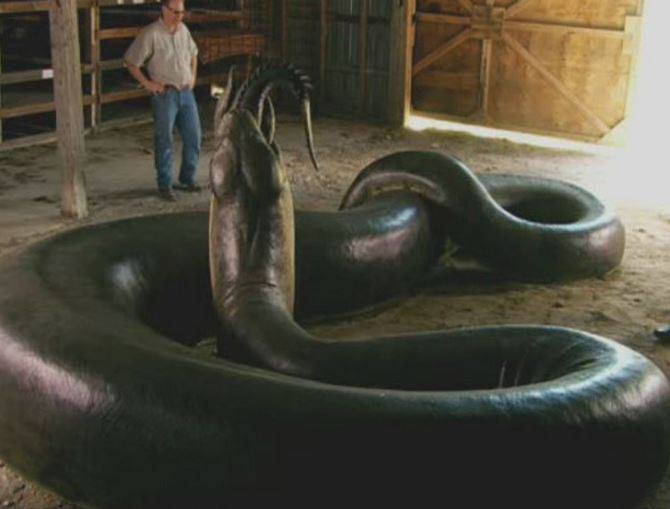
A terrifying 48-foot, 2,500lb predator that slithered through rainforests 60 million years ago has been brought back to life by the Smithsonian.
In the wake of the dinosaurs, other predators battled for supremacy. Titanoboa was the biggest – a huge snake that would dwarf any anaconda, and which is the undisputed largest in history.
The Smithsonian has recreated the terrifying beast in a new TV show which explores a question that puzzled scientists – why the snake grew so large.
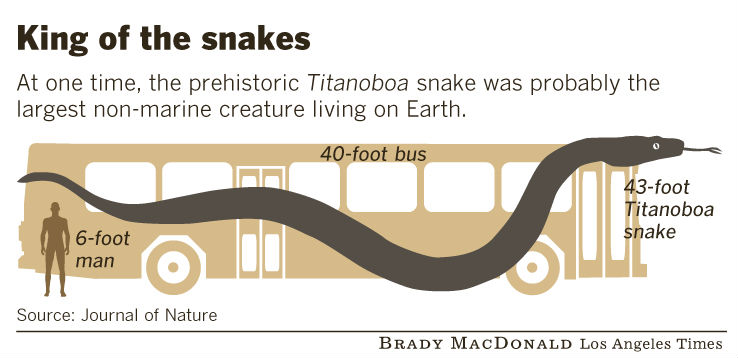
This is a find that seems so fantastic that it may appear to be an object of fantasy. A creature that has sprung from a Spielberg-imagined past and yes, it has a name that evokes a giant and mythic monster. It is called Titanoboa,’ David Royale, the Smithsonian Channel’s head of programming, announced.
The Smithsonian Channel has created a film that chronicles the discovery of the 48 foot long and 2,500 pound snake that existed more than 60 million years ago – and recreates what the predator might have looked like.
The film has been promoted with a life-size statue which was on show in New York’s Grand Central.
Dr. Jonathan Bloch, a paleontologist and curator at the Florida Museum of Natural History was part of the team that unearthed Titanoboa’s fossils.
The snake vertebrae were discovered in an area that is believed to have been an ancient rainforest from the Paleocene epoch.
Snake skulls are almost never found as they are extremely fragile and they usually disintegrate.
‘One of the questions we had was why did it get so large and we think that the answer is because it was much warmer in the tropics during that time.
‘Titanoboa was the largest predator on land after the extinction of the dinosaurs for at least 10 million years, maybe longer, so this was a major predator on the earth after the extinction of dinosaurs,’ Bloch explained.
The fossilised remains were found in an open cast mine in Cerrejon, Colombia with turtles and crocodiles.
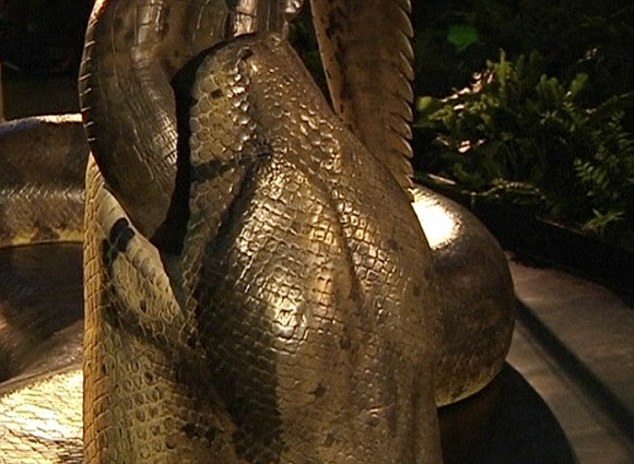
Scientists at the Smithsonian have recreated Titanoboa in a video aimed at exploring why the snake grew to its huge 48-foot length and 2500lb bulk
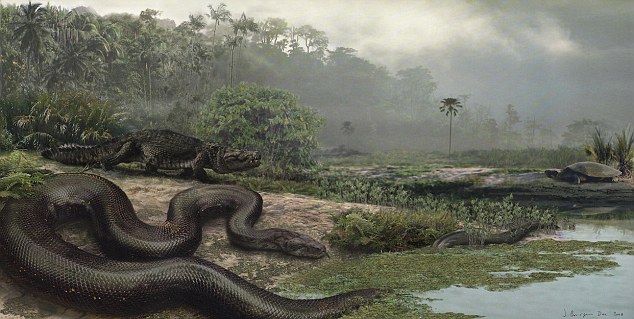
Titanoboa cerrejonensis measured 48 feet, weighed as much as a car, and had a body more than a yard thic. The monster relative of the boa constrictor lived in northern Colombia 60 million years ago
The creature lived during the Palaeocene epoch – the 10million-year period that followed the destruction of the dinosaurs by a giant asteroid or comet, and helps fill a missing gap in evolution.
Before the discovery, there had been no fossil vertebrates – or animals with back bones – between 65million and 55million years ago in tropical South America.
Dr Jason Head, of the Smithsonian’s National Museum of Natural History, in Washington DC, said: ‘Now we have a window into the time just after the dinosaurs went extinct and can actually see what the animals replacing them looked like.’
He added: ‘This colossal, boa constrictor-like creature stretched longer than a city bus and weighed more than a car. It’s the biggest snake the world has ever known.
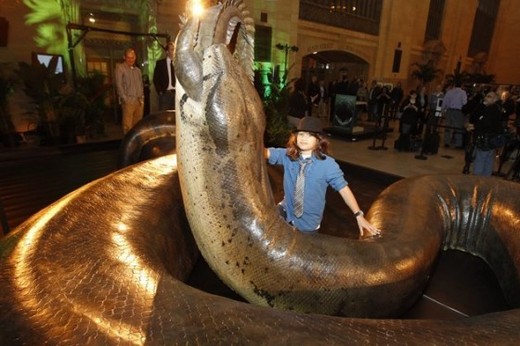

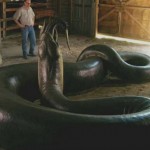
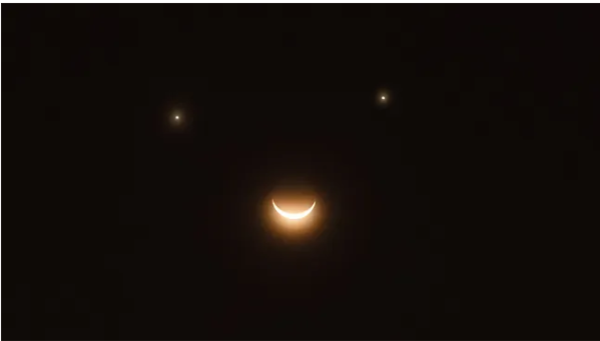

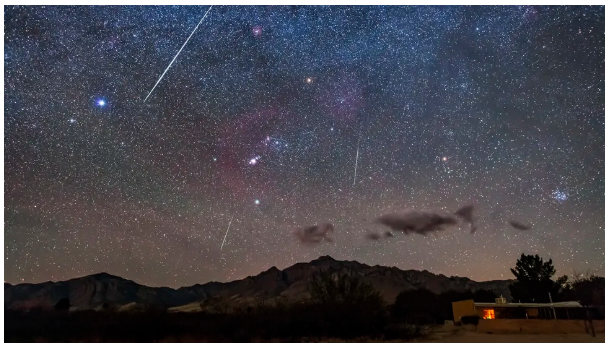

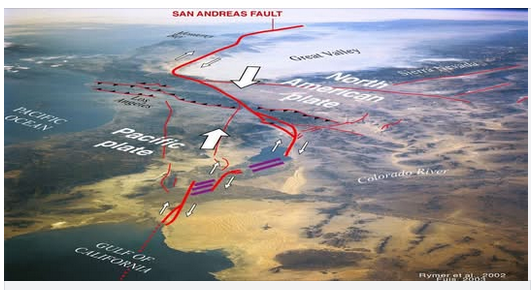

 Photographer Finds Locations Of 1960s Postcards To See How They Look Today, And The Difference Is Unbelievable
Photographer Finds Locations Of 1960s Postcards To See How They Look Today, And The Difference Is Unbelievable  Hij zet 3 IKEA kastjes tegen elkaar aan en maakt dit voor zijn vrouw…Wat een gaaf resultaat!!
Hij zet 3 IKEA kastjes tegen elkaar aan en maakt dit voor zijn vrouw…Wat een gaaf resultaat!!  Scientists Discover 512-Year-Old Shark, Which Would Be The Oldest Living Vertebrate On The Planet
Scientists Discover 512-Year-Old Shark, Which Would Be The Oldest Living Vertebrate On The Planet  Hus til salg er kun 22 kvadratmeter – men vent til du ser det indvendigt
Hus til salg er kun 22 kvadratmeter – men vent til du ser det indvendigt  Superknepet – så blir snuskiga ugnsformen som ny igen!
Superknepet – så blir snuskiga ugnsformen som ny igen!  Meteorite That Recently Fell in Somalia Turns Out to Contain Two Minerals Never Before Seen on Earth
Meteorite That Recently Fell in Somalia Turns Out to Contain Two Minerals Never Before Seen on Earth  Nearly Frozen Waves Captured On Camera By Nantucket Photographer
Nearly Frozen Waves Captured On Camera By Nantucket Photographer  It’s Official: Astronomers Have Discovered another Earth
It’s Official: Astronomers Have Discovered another Earth 